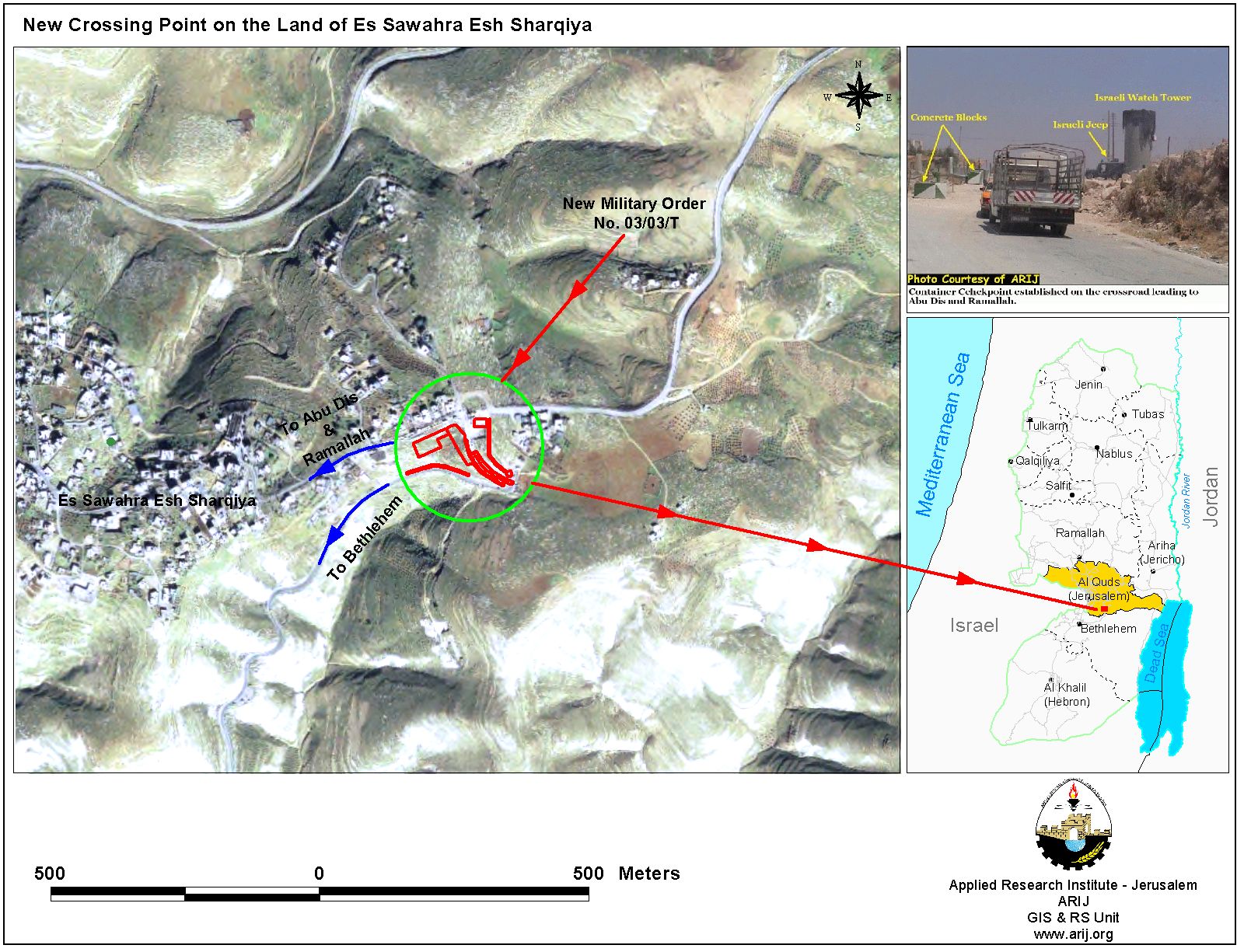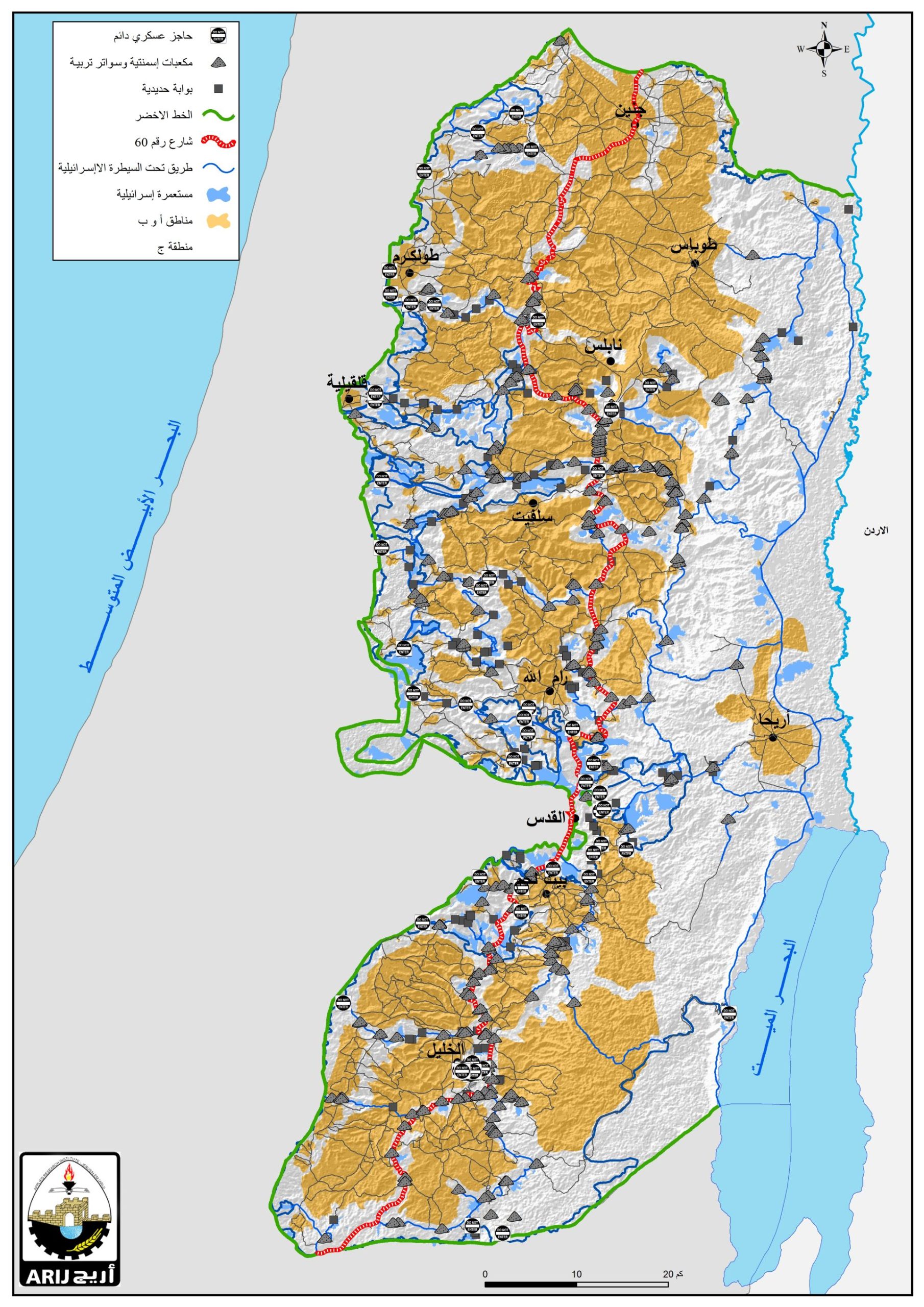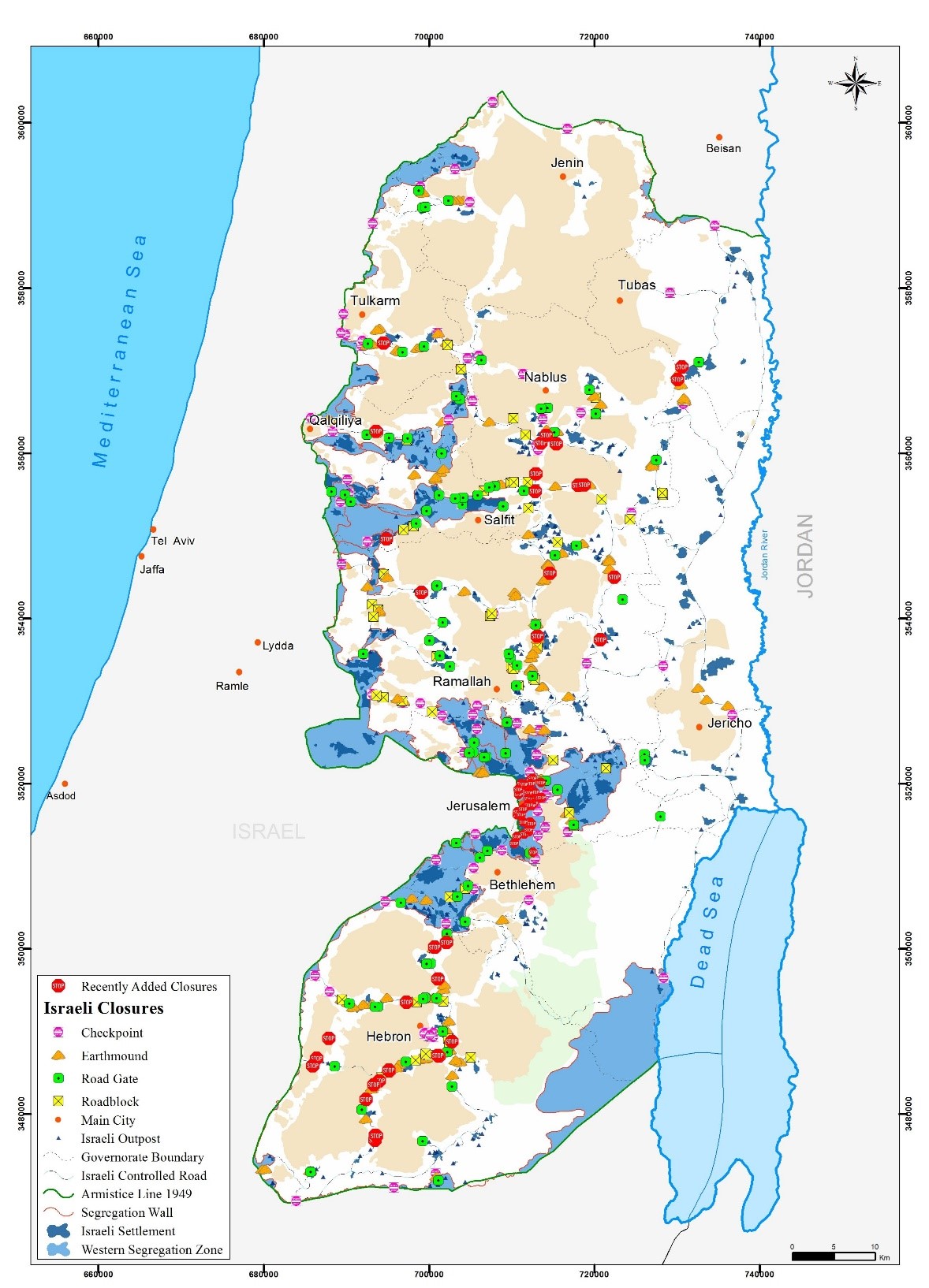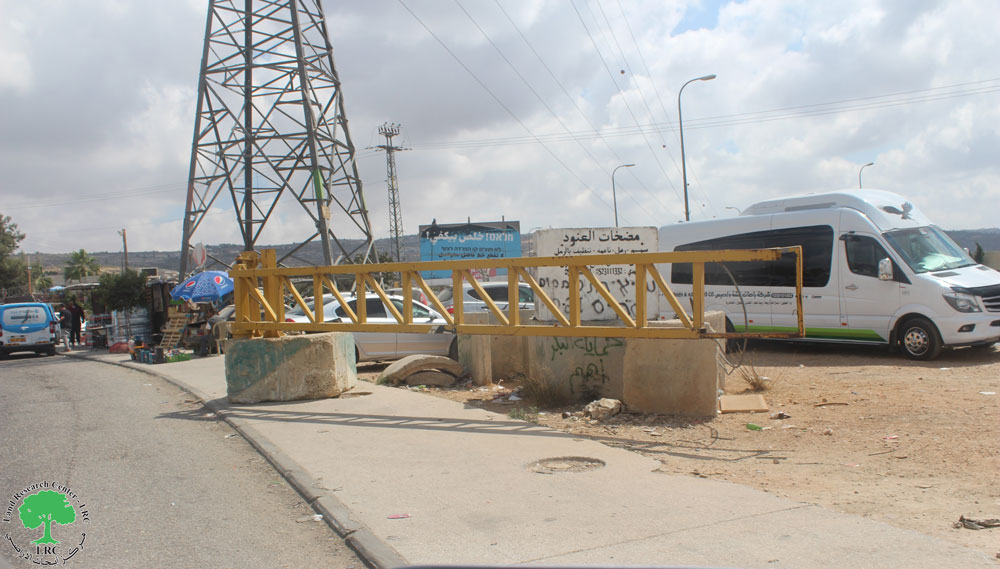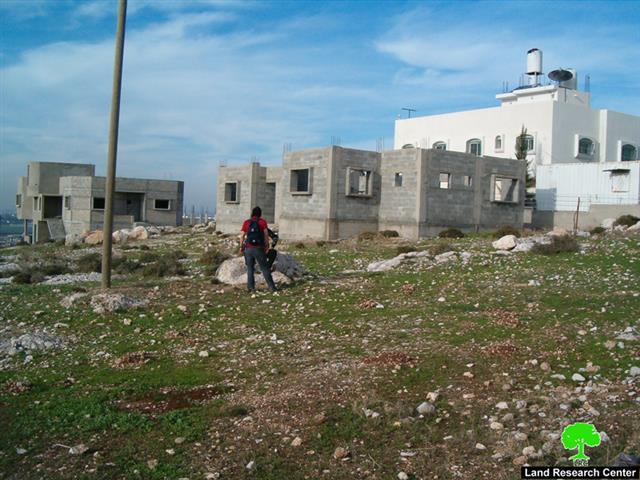Right at the time when Israel began to isolate Jerusalem in 1993 and to restrict the movement of Palestinians to the city by establishing checkpoints at the entrances to Jerusalem, a new road emerged for Palestinians travelling between the southern and northern parts of the West Bankâ??â??Wadi Al-Narâ?? road, which begins in the north-eastern area of Bethlehem. Along Wadi Al-Nar, a small grocery (if one could call it that) was located at the crossroads between Bethlehem and Abu Dis (southeast of Jerusalem). The grocery in question, which, in fact, was a 20-foot shipping container, was owned by a Palestinian. It is this container that later became the location of a periodic Israeli checkpoint (2â??3 times a month) and has thus become identified by Palestinians as the â??Container Checkpointâ??.
The Container Checkpoint has become significant to the life of the Palestinian general population as it constitutes the one and only means of access between the West Bank southern districts (Hebron and Bethlehem) and the northern ones (Ramallah, Nablus, Jenin, Qalqilyia, Tulkarem, Salfit, Tubas, and Jericho), as it literally divides the West Bank into two separate geographical entities. Since the eruption of the second Intifada in September 2000, crossing from one part to the other in private cars requires a special permit issued by the Israeli Civil Administration.
Prior to the second Intifada, an Israeli Army patrol would make a temporary road block (no more than an hour) to check the ID cards of Palestinians who passed through the area. At the time the Intifada began, however, the area became an almost permanent location for Israeli Army patrols that set up roadblocks as a matter of course. Consequently, the lives of the Palestinians moving through that area in both directions became more complicated, and people became more frustrated. The normal travel time between Bethlehem and Ramallah through Wadi Al-Nar is 50 minutes, but since the installation of a permanent checkpoint, travellers would consider themselves lucky if the trip only took 150 minutes!
In 2002, the Israeli Army blocked the road with cement barriers, restricted movement through the checkpoint to those with Israeli-issued permits, and installed an iron gate. The procedures from that time on became more difficult as the Israeli soldiers at the gate only randomly allowed access to Palestinians passing through the Iron Gate in both directions.
In mid-2003, the Israeli Army reshaped the area and rigged a cylinder concrete watchtower as procedures to cross the checkpoint became increasingly problematic. Apparently Israel had no intention to abandon the checkpoint any time in the near future, but was looking to tighten its grip on this vital location and continue to manipulate the lives of thousands Palestinians passing through the gate every day.
When the Israeli Army began to restructure the location of the Container Checkpoint to conform to its so-called security needs, the army coercively evacuated the original spot of the container grocery and rigged concrete blocks in its place; however, the people still identify this checkpoint with its original name â??the Containerâ?? to this day.
On June 14, 2004, the government of Israel decided to turn the Container Checkpoint into a fortified crossing area for Palestinians. The Israeli Army issued a military order holding number (03/03/T) to confiscate 4.85 Dunums of land to restructure the vicinity of the Container Checkpoint area. The new plans included several watchtowers (one of which already existed), extensive amassing of concrete blocks, encircling the designated area with barbed wire, constructing passageways through which pedestrians and public and private transportation could pass provided that proper authorization from the Israeli civil administration be acquired. See Map
From that time on, life for Palestinians has never been the same. It is much worse even than when the Israeli Army banned them from entering Jerusalem. Palestinians feel as though they are confined to their residential areas by the Container Checkpoint. The social, economic, and other aspects of life have become impossibly difficult. A survey conducted by the World Bank in 2003 found that 80.5 percent of West Bank residents reported restrictions on movement that prevented them from going to work. Getting to work was â??difficult to impossibleâ?? for 37.9 percent of respondents.
Since the Israeli occupation of the West Bank and Gaza territory in 1967, checkpoints have become standard daily fare for Palestinians travelling through the occupied territory. However, it was not until the Palestinian Intifada of September 2000 that the Israeli Army greatly increased the number of operating checkpoints in the West Bank and Gaza and imposed new restrictions on Palestinians who attempt to cross these checkpoints. Furthermore, over the past few years, the behaviour of the Israeli soldiers stationed at these checkpoints has changed from the â??usualâ?? harassment to more vicious and sadistic acts. Palestinians from various sectors of society (students, teachers, patients, medical staff, and employees) are routinely subjected to forms of Israeli cruelty that include beatings and various types of humiliation (being forced to strip in front of soldiers and others, being forced to sit for long periods in mud, being made to stand for hours under the burning sun or in the bitter cold) before they are allowed to cross a certain checkpoint. In addition, patients in need of routine or emergency medical care as well as medical staff are frequently denied permission to pass through the checkpoints, even if they are in ambulances. This has resulted in a number of deaths.
Israeli checkpoints torment Palestinians in every aspect of their daily lives. Social ties are cut, the economy is shattered, unemployment continues to rise, medical needs are not met, and despair-breeding ghettos are being created. The proliferation of ever-more-complex checkpoints adds yet another means through which Israel attempts to strangle the lives of Palestinians.
Prepared by
The Applied Research Institute – Jerusalem
ARIJ



